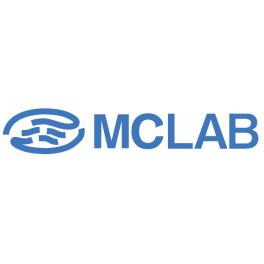 View full size
View full size
- Nucleic Acid Analysis
- Protein Analysis
- Biochemical Reagents
-
Enzymes
- Thermophilic DNA Polymerases
- Mesophilic DNA Polymerases
- Restriction Endonucleases
- Reverse Transcriptase and RNA Polymerases
- DNA/RNA Ligases
- RNases
- Proteases
- Nucleases
- Kinases
- Phosphatases and Sulfurylases
- DNA Repair Proteins
- Single-Stranded DNA Binding Proteins
- Chaperon Proteins and Disulfide Bond Isomerase
- Gene editing
- Molecular cloning
- Clinical diagnostics
- Laboratory instruments
- Software
- Download
- A&A Biotechnology
News
 View full size
View full size
Description
TGF-beta 2 (transforming growth factor beta 1) is one of three closely related mammalian members, TGF-beta 1, -2 and -3 , of the large TGF-beta superfamily that share a characteristic cystine knot structure. These three TGF-beta isoforms are highly pleiotropic cytokines that are proposed to act as cellular switches that regulate processes such as immune function, proliferation and epithelial-mesenchymal transition. They are involved in various physiological processes, including embryogenesis, tissue remodeling and wound healing. They are secreted predominantly as latent complexes, which are stored at the cell surface and in the extracellular matrix.
TGF-beta 2 signaling begins with binding to a complex of the accessory receptor betaglycan (also known as TGF-beta RIII) and a type II ser/thr kinase receptor termed TGF-beta RII. This receptor then phosphorylates and activates another ser/thr kinase receptor, TGF-beta RI, or alternatively, ALK-1. The whole complex phosphorylates and activates Smad proteins that regulate transcription.
Full Name
Transforming growth factor beta 2
Source
E. coli
Species
Human
Accession #
P61812
Molecule Weight
The mature recombinant human TGF-beta 2 consists of 112 amino acids (303-414) and has a predicted molecular mass of 12.7 kDa.
Purity
> 95 % as determined by SDS-PAGE
Endotoxin
< 0.1 EU per μg of the protein as determined by the LAL method
Activity
Measured by its ability to inhibit the IL-4-dependent proliferation of HT‑2 mouse T cells. The ED50 for this effect is 0.025-0.25 ng/mL.
Storage
-80 °C, avoid repeated freeze-thaw cycles.
Storage Buffer
PBS
Cart
Payment gate



